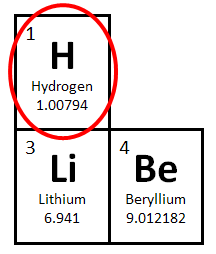Green Vehicle Guide
Hydrogen Fuel Cell Vehicles (FCVs)

FCVs are similar to electric vehicles in that they use an electric motor to power the wheels. However, these vehicles use "fuel cells" onboard the vehicle to generate electricity, rather than being plugged in to charge a battery. In a fuel cell, hydrogen (H2) from the fuel tank is combined with oxygen from the air to generate electricity. Water is also produced in this process.
Like electric vehicles, FCVs have no smog-related or greenhouse gas tailpipe emissions, but emissions
may be created in the process of producing and transporting hydrogen fuel. Learn about the different
ways to produce hydrogen fuel.
![]()
Several automotive manufacturers are currently offering, or have announced plans to offer, FCVs for lease or sale in select markets over the next few years.
Did You Know?
Click on the boxes to learn more...

Did You Know?
Although most hydrogen fuel (H2) is currently produced from natural gas, it can also be made from water (H2O) using solar or wind power. Research is underway to bring the cost down for this and other methods to produce hydrogen fuel using renewable energy. Learn more.

Did You Know?
Fueling a hydrogen FCV is very similar to refilling your gas tank: attach the nozzle from a designated hydrogen dispenser at a public station. It should take less than 10 minutes to fill up.

Did You Know?
Hydrogen fuel can also be produced from your trash! Pilot projects have used landfill gas and wastewater to make hydrogen fuel.

Did You Know?
Current fuel cell vehicle models are achieving about 50-60 MPGe.

Did You Know?
Current FCVs can drive about 250 miles on one tank of hydrogen, which is greater than the distance between New York and Boston. Driving range will likely increase as fuel cell technology continues to improve and more FCV models enter the market.

Did You Know?
Platinum, a metal commonly used in wedding rings, is also a key component of many fuel cells. Research is underway to reduce the amount of platinum needed in FCVs, and in turn reduce their cost.
